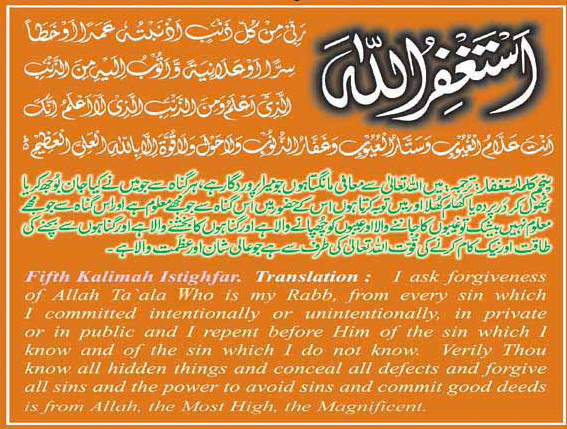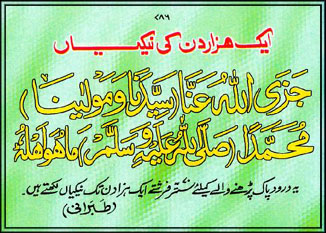May the peace, mercy, and blessings of Allah be with you
Assalamu’alaikum warahmatullahi wabarakatuh السَّلاَمُ عَلَيْكُمْ وَرَحْمَةُ اللهِ وَبَرَكَاتُهُ May the peace, mercy, and blessings of Allah be with you.
Bismillahhir rahmanir rahim:
بِسْــــــــــــــــــمِ اﷲِالرَّحْمَنِ اارَّحِيم
In the name of Allah, the beneficient, the merciful.
اَهْلاًوَسَهْلاً (ahlan wa sahlan)
How are all you wonderful people? I trust I am finding you enjoying this lovely day wherever you are 🙂
A little something which is on my mind today:
Use these sunnah words during the day. How many of us know the following terms and its meanings?
- Assalaamu Álaykum (Peace be upon you) – by way of greetings
- Wa alaykumus salaam (peace be upon you) – in reply to the greetings
- Bismillah (in the name of Allah) – before making a beginning
- Jazakallah (may Allah reward you) – for expression of thanks
- Fi Amanullah (may Allah protect you) – by way of saying good-bye
- Subhaanallah (glory be to Allah) – for praising something
- Insha Allah (if Allah wishes) – for expressing a desire to do something
- Astaghfirullah (I beg Allah for forgiveness) – repenting for sins before Allah
- Maa shaa Allah (as Allah has willed) – for expressing appreciation of something good
- Alhamdulillah (praise be to Allah) – for showing gratitude to Allah after success or even after completing anything
- Yaa Allah (Oh Allah) – when in pain or distress, calling upon Allah and none else
- Aameen (may it be so) – the end of a Dua or prayerInnaa lillaahi wa innaa ilayhi raaji’oon (to Allah we belong and to Him is our return) – this is uttered as an expression of sympathy of the news of some loss or some one’s death
- As salamu aleiykum wa rahmatullahi wa barakatuh -Peace and mercy and blessings of Allah be upon you
- Waleiykum assalam wa rahmatullahi wa barakatuh-And peace and mercy and blessings of Allah be upon you
- Bismillah – before making a beginning In the name of Allah
- May Allah reward you – JazakAllahu khair for _expression of thanks May Allah reward you for the good
- BarakAllahu feekum – responding to someone’s thanks May Allah bless you
- Astaghfirullah – repenting for sins before Allah I beg Allah for forgiveness
- Aameen – the end of a Dua or prayer May it be so
- Sal allahu aleihi wasallam – whenever say the name of Prophet Muhammad Peace be upon him (S.A.W.)
- Alaihi salaam – whenever say the name of a prophet Peace be upon him (A.S.)
- Radi Allah Anhu – whenever say name of male companion of the Prophet (Sahabi) May Allah be pleased with him (R.A.)
- Radi Allah Anha – whenever say name of female companion of the Prophet May Allah be pleased with her (R.A.)
- Radi Allah Anhum – Plural form of saying companions of the Prophet May Allah be pleased with them (R.A.)
- La hawla wala quwata illah billah – during the time of troubles There is no strength nor power except Allah
- Fi sabi lillah – giving charity For the sake of Allah
- “Tawakkal-tu-Allah – rely on Allah) to solve a problem
- Tawkkalna-Alai-Allah – we have put our trust in Allah) when you wait for a problem to be solved.
- Rahmah Allah – Allah have Mercy on him) when you see someone in distress.
- Na’uzhu-bi-Allah – when we seek refuge in Allah) to show your dislike.
- Inna Lillah – we are for Allah – when you hear about a death
- Atqaa Allah -fear Allah – when you see someone doing a bad deed.
- Allahu Yahdika – may Allah guide you – to forbid somebody to do something indecent.
- Hayyak Allah – (Allah maintain your life) when you greet someone.
- Allah Aalam – (Allah knows best) when you say something you are not sure of.
- Tabarak Allah – (blessed be Allah) when you hear a good news
- Hasbi Allah – (Allah will suffice me) when you are in a difficult situation.
- Azhak Allah Sinnaka – (May Allah keep you cheerful) when you seek another Muslim with cheerful countenance.
“By Time, Indeed, mankind is in loss, Except for those who have believed and done righteous deeds and advised each other to truth and advised each other to patience.”
[Qur’an, Al-Asr 103]
All praise is to Allah, the Lord of the Worlds. We ask His forgiveness, seek His aid, and ask Him for guidance. We seek refuge in Allah from the evil that is in ourselves, and from the evil of our actions. Whomever Allah guides, none can send astray, and whomever Allah sends astray, none can guide. We testify that none has the right to be worshipped except Allah, alone and without partner. And, we testify that Muhammad (saws) is His slave and messenger, peace and blessings be upon him, his family, his companions and the rightly guided predecessors until the Last Day. Ameen.





















